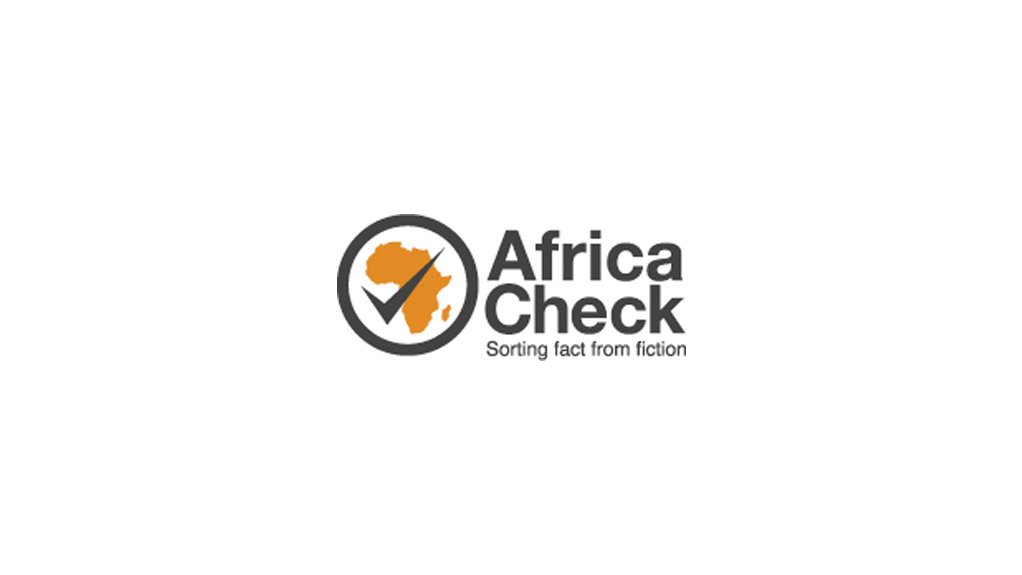The group, which endorsed opposition leader Peter Obi for the country’s 2023 presidential election, is based in the US state of Texas.
It claims to be a “parent organisation” of Nigerian youth groups in the diaspora. But it wouldn’t answer Africa Check’s questions about its constituency or reach, saying only that it was “registered”. The coalition also didn't specify what government agency it was registered with.
Remittances from Nigerians living abroad amount to billions of dollars, contributing to Nigeria’s gross domestic product (GDP). In 2018 alone, the inflow of migrant remittances into Nigeria was estimated at US$23.81-billion, up from $22-billion in 2017.
The group describes its mission as preparing Nigerian youth for governance. So we checked the accuracy of its claims about inflation, jobs and the size of the economy.
Inflation is a measure of how the prices of a basket of commonly used goods and services have risen over a period of time, usually a year. It is defined as general price increases.
Causes of inflation include:
- An oversupply of money in an economy, which depreciates the currency and reduces purchasing power, causing prices to rise.
- A reduction in the supply of goods and services, which can be caused by disruptions such as natural disasters or increased demand.
Nigeria’s National Bureau of Statistics (NBS) keeps records of monthly inflation. Its December 2023 consumer price index report, published in January 2024, contains the country's latest available inflation rate.
According to the data, inflation was 28.92% in December 2023.
In 2010, when Goodluck Jonathan became president, the rate was 11.8%. It was 9% in May 2015, when former president Muhammadu Buhari took over. In May 2023, when incumbent Bola Tinubu began his term, it stood at 22.41%.
The diaspora group also claimed that unemployment in Nigeria was over 25%. Unemployment refers to the state where people who are able to work and are actively looking for a job are unable to find one.
The NBS collects data on unemployment in the country. Dr Baba Madu, head of the national accounts division at the agency, told Africa Check that the most recent data on employment was a labour report published in December 2023, but that NBS staff were collecting newer data.
The report sampled 8 836 households across the country and found that the country’s unemployment rate in the second quarter of 2023 (April to June) was 4.2%, significantly lower than claimed.
In the group's view, this level of GDP is indicative of a significant economy with huge growth potential.
Gross domestic product is a measure of the size of an economy. It is the market value of all goods and services produced in a given period, usually a year.
A country's GDP is usually calculated by its national statistical office, which compiles information from a variety of sources. However, most countries follow established international standards set by the International Monetary Fund (IMF) and other global agencies.
According to data from the World Bank, Nigeria's nominal GDP in 2022 was $472.6-billion. Nominal, or current, estimates are not adjusted for inflation but they are a good measure of the overall size of an economy.
For additional context, this isn’t the country’s highest GDP. In 2014, it was $574-billion. “It is true that the country's economy was growing at the time due to the oil boom, which enabled the government to pay off a large part of the country's external debt. With growing foreign reserves, the exchange rate was expectedly stable,” Sheriffdeen Tella, a professor of economics at the Olabisi Onabanjo University in southwestern Nigeria, told Africa Check.
A nation's productivity is measured by its GDP per capita, which measures the average economic output per person in a given country or region.
It is considered by many to be a key indicator of the health of an economy. This is according to Prof Abayomi Adebayo, who teaches economics at the Obafemi Awolowo University Ile-Ife in south-west Nigeria.
The IMF provides country estimates of GDP per capita. According to the international organisation, Nigeria's GDP per capita was $1 760 in 2023, down from $2 200 in 2022.
The World Bank estimates Nigeria's GDP per capita at $2 162.6 in 2022, down from $2 065.8 in 2021.
This report was written by Africa Check., a non-partisan fact-checking organisation. View the original piece on their website.











